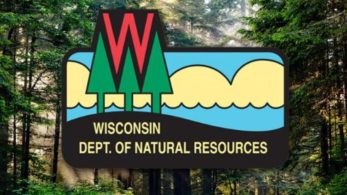FOR IMMEDIATE RELEASE: June 26, 2020
CONTACTS:
Lt. Jon King, DNR Bureau of Law Enforcement Hunter Education Administrator
608-575-2294 or jon.king@wisconsin.gov
Lt. Martin Stone, DNR Bureau of Law Enforcement OHV Education Administrator
608-778-2035 or martin.stone@wisconsin.gov
Penny Kanable, DNR Bureau of Law Enforcement Boating Administrator
608-228-9352 or penny.kanable@wisconsin.gov
DNR Hunter Safety Classes Resume July 13
Social Distancing, In-Class Limits And Room Setup
Among New Safety Protocols
MADISON, Wis. – In-person hunter and recreational vehicle education classes will resume July 13 under a set of guidelines and safety protocols released Friday by the Wisconsin Department of Natural Resources’ Recreational Safety and Outdoor Skills Section under Phase II of the Wisconsin State Government Bounce Back Plan.
The in-person hunter and recreational vehicle education classes resuming July 13 are for courses with 50 people or less. Based on a review of enrollment data for DNR hunter safety courses over the past three years, less than 2% of the more than 2,200 courses provided exceeded 50 attendees.
In March, the DNR temporarily suspended all in-person hunter education and recreational safety classes due to public health advisories relating to COVID-19. At the same time, the DNR also canceled, adjusted and postponed an array of other in-person public events, meetings, trainings and agency operations to protect public health.
The suspension reflected the dedication to safety by the DNR and the program; and, provided the time to establish classroom guidelines to keep students and instructors as safe as possible from COVID-19 exposures.
The COVID-19 public health steps go beyond providing the educational safety courses for hunting, boating and off-highway vehicles, and will remain part of the safety class environment as classes start in July. The safety protocols are for the protection of students and instructors, and the communities where they live. The DNR will continue to prioritize the safety of the public, volunteer instructors, and department staff when determining protocols for resuming in-person recreational safety classes.
“We wish we had a one-size-fits-all plan. That is not possible because each safety class – whether it is hunter education or about recreational vehicle use – is different by location and the instructor,” said Lt. Warden Jon King, DNR Bureau of Law Enforcement administrator of the hunter education program. “However, the safety and the well-being of our students and our instructors remains priority Number One regardless of where the class takes place.”
CLASS TIMELINE
The DNR’s Recreational Safety and Outdoor Section will work collaboratively with our volunteer instructors and partners to reopen our safety classes. The timeline is as follows:
- Instructors may start to enroll classes into GoWild on Sunday, June 28.
- Classes may start Monday, July 13.
SAFETY CLASS PARTICIPANTS CAN EXPECT THESE CHANGES:
- Social distancing of 6 feet between participants
- Maximum of 50 participants in any one class
- Attendees strongly recommended to wear face covering
- Sanitizing of class equipment
- Availability and use of hand sanitizer
- Outdoor class instruction where possible
Wisconsin hunter education started in 1967 with a grassroots effort to reduce hunting incidents and to educate hunters to make them safe, responsible and ethical. Since then, multiple generations of families have attended hunter education. There have been over 20,000 volunteers who have helped educate the hunters of Wisconsin and approximately 1.2 million hunters have been certified. Incident rates for gun deer accidents continue to decrease with 9 years of gun deer seasons with no fatalities.
“Our intent is to go back to normal only when safe,” King said, adding that protocols may change as conditions do. “These safety rules and guidelines are essential until the ongoing pandemic threat is gone.”
The DNR remains strongly committed to the health and safety of recreational safety course instructors and students. The department continues to receive the most up-to-date information and will adjust operations as conditions change. Learn more about the DNR Safety Education Program here.
For specific information regarding COVID-19 we encourage the public to frequently monitor the DHS website for updates, and to follow @DHSWI on Facebook and Twitter, or dhs.wi on Instagram. Additional information can be found on the CDC website. |
